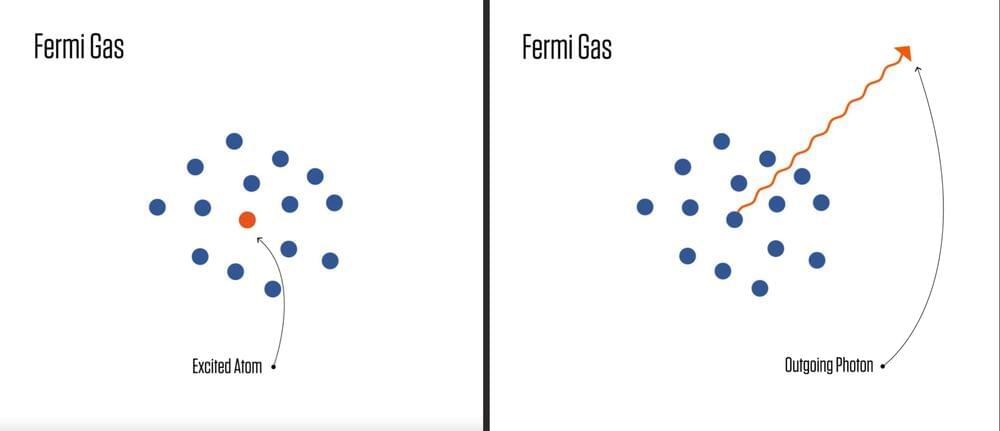JILA researchers have tricked nature by tuning a dense quantum gas of atoms to make a congested “Fermi sea,” thus keeping atoms in a high-energy state, or excited, for about 10% longer than usual by delaying their normal return to the lowest-energy state. The technique might be used to improve quantum communication networks and atomic clocks.
Quantum systems such as atoms that are excited above their resting state naturally calm down, or decay, by releasing light in quantized portions called photons. This common process is evident in the glow of fireflies and emission from LEDs. The rate of decay can be engineered by modifying the environment or the internal properties of the atoms. Previous research has modified the electromagnetic environment; the new work focuses on the atoms.
The new JILA method relies on a rule of the quantum world known as the Pauli exclusion principle, which says identical fermions (a category of particles) can’t share the same quantum states at the same time. Therefore, if enough fermions are in a crowd—creating a Fermi sea—an excited fermion might not be able to fling out a photon as usual, because it would need to then recoil. That recoil could land it in the same quantum state of motion as one of its neighbors, which is forbidden due to a mechanism called Pauli blocking.
